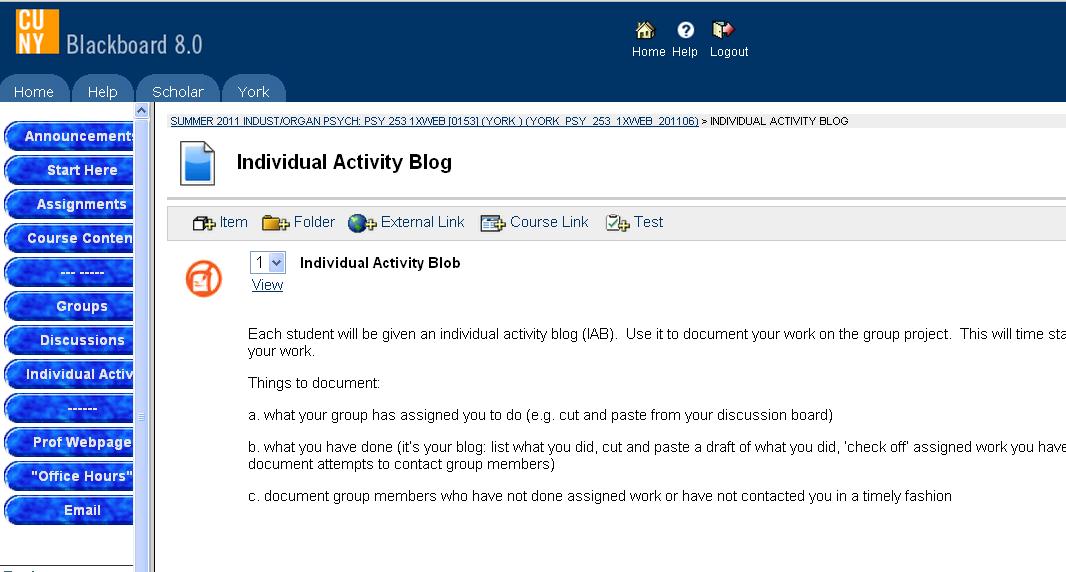If I were in the groups, I would suggest the following:
1. Everyone should post their individual answers to their group’s forum (the bulletin board) as soon as they submit them to me tonight. Thus, by tomorrow morning, you should have a good idea of who’s participating and who isn’t participating.
2. One way of making this a group project (not a group confusion) is to assign one or two questions to a person. Each person’s assignment would be to look at the individual answers to their questions and collate the answers. If for example, everyone has the same answer for one question, then you probably wish to make that answer your group answer. If, for another question, there are two or three different answers, then the group needs to examine this question more carefully.
3. People should post their conclusions for the question on the forum by a give time.
4. Now everyone should read the reports and begin discussing the questions with conflicting answers. Which answer is the best and why? This should generate much discussion and also cause the group to go over the basics of research methods and step by step examine how they were applied and look for errors.
Caveats
1. Most groups won’t do this. They will split the work up to individuals and then concatenate the individuals answers just before submitting the group answers. This is not group work: you are not benefiting from different eyes on the same problem or the emergent qualities of group discussion.
Also, this means that your grade is not under your control: since the group doesn’t review the answers first you have not control over what others are submitting. If that’s okay with you then that’s fine.
2. While the process I espoused is a good one, clinkers will screw it up. Don’t wait for people to get around to doing assigned tasks. Also, how will you handle someone given a task but not doing it?
Note: This represents a departure for me in group work. In the past I have let the groups
develop their own procedure, believing that that is part of the learning process.
While that view can be easily supported, I've realized that students are
too inexperienced to easily provide structure.






